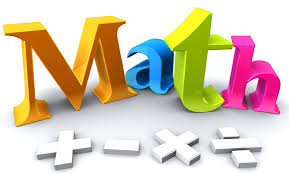I was reading an article today that stated that 1 in 5 Americans are "innumerate". This means that 1 in 5 adults in America cannot do basic arithmetic problems, and are not capable of working even "low-level jobs". (You can read the article I am referring to here: http:
http://newsroom.unl.edu/announce/primarilymath/2124/11904)
Being "innumerate" is comparable to being "illiterate". Hearing that 22% of Americans fit into this category is sad and shocking. Our nation has been working so hard to raise kids that know how to pass a test, but are we preparing them to use skills in a real life setting?
Another interesting read is "Faster Isn't Smarter" by Cathy L. Seeley (copyright 2009). In this book Seeley gives a brief rundown of the history of math in public schools, which helps explain how we got to where we are today.
The 1940's- after World War II, the United States was viewed as a world leader, and we were not yet worried about the "level of education needed for a successful future"
The 1950's- when Russia launched Sputnik, America realized we were falling behind
The 1960's- America began working to educate a generation of scientists and mathematicians by improving math education, but unfortunately adequate training was not available for everyone and some teachers and parents were left not knowing how to help the children
The 1970's- because some teachers and parents did not know how to help the children math education started to switch back to a more traditional focus on computation
The 1980's- people began to see that a narrow vision of math limited students' abilities, and research and reports began rolling out to show evidence of this, while a cry to raise standards and accountability became a common theme
The 1990's- NCTM urged our nation to overhaul math and states began raising expectations
The 2000's- we are still looking for higher expectations for students AND teachers in science and math
("Faster Isn't Smarter, Cathy L. Seeley, Message 4 pg. 18)
Seeley points out a major flaw in our current mathematics instruction. She states, "Our tendency in the United States is to spoon-feed our students by telling them exactly how to solve a certain type of problem and then asking them to practice solving similar problems......observers found that even when American teachers started with a challenging task, they almost always gave students excessive guidance or intervened as soon as students had difficulty." (pg. 5)
Of course we want our students to feel successful. It is tempting to give them answers and strategies that make them achieve a task fast and easy. The problem is that what may help students on the next test does not always help them long-term. We need our students to have a "working knowledge of mathematics". Simply put, they need to know how to use math and how to problem solve in real life situations.
Seeley sums it up by saying, "An important element of this kind of education is a commitment to go beyond teaching basic skills, beyond requiring students to know how to perform procedures, and beyond offering recipes for solving problems that look alike. To limit our students to such a narrow view of mathematics is to barely equip them for the bottom tier of jobs the United States now outsources. We need to expect much more of all our students if they are to compete for the kinds of jobs that help businesses and societies solve the problems they face every day- problems no one yet knows how to solve; problems that call for the best creative thinking and problem-solving skills we can bring to the table."
("Faster Isn't Smarter, Cathy L. Seeley, Message 1 pg. 3)
The idea is that we want our children to grow up equipped to have a good-paying job. We want our nation to be able to contribute to society. We want to boost our own economy by being capable of working our own jobs and solving our own problems. Just like the old saying goes, "You give a man a fish, you feed him for a day. You teach a man to fish, you feed him for a lifetime." By changing the way we think about and teach mathematics we can go beyond teaching our students how to be successful for just one day, and help them be successful for a lifetime.


